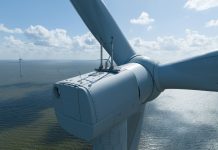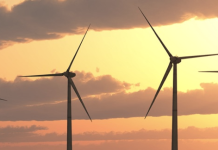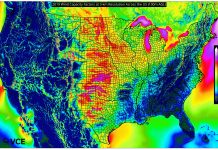After years of false starts and delays, U.S. offshore wind is finally gaining momentum, fueled by innovation in turbine technologies, greater economies of scale, and increased political support — at least at the state level. New York, in particular, is ideally placed to benefit and serve as an economic and financial hub for U.S. wind over the next decade.
This is according to the latest findings outlined by industry intelligence service A Word About Wind in its Finance Quarterly Q2 report. The report forms the latest analysis published exclusively for its rapidly expanding international membership of energy developers, financiers, and investors.
This financially focused, quarterly investor report series provides an exclusive insight into key M&A transactions, data on the most notable deals of the past three months, economic country forecasts, and unrivaled investment analysis, four times a year.
This edition focuses on the U.S. wind market, and that of New York in particular, and reveals that 2.4 GW of wind PPAs were agreed in the first quarter of 2018 — making it the busiest quarter for PPAs in the U.S. since 2013.
While the Trump administration and its tax reforms have given rise to considerable uncertainty, for instance, this has been more than compensated for by the initiatives of state governments in New York, New Jersey, and Massachusetts, among others.

regional leader in offshore wind. (Courtesy: Pixabay)
However, market challenges such as the Jones Act, which requires that goods shipped between U.S ports be carried on ships that are U.S.-built, U.S.-flagged, and U.S.-crewed, have the potential to disrupt the pace of growth. In addition, the proposed 25 percent tariff on steel — the major raw material in wind turbines — could well result in increased turbine prices.
Nevertheless, the outlook for U.S. offshore wind remains positive. As one of the world’s largest financial centers, New York is well placed to attract investors’ interest and capital and position itself as a regional leader in offshore wind. And it has already set itself the ambitious target of generating 50 percent of its electricity from renewable sources and having a total offshore capacity of up to 2.4 GW by 2030.
Significantly, the New York State Energy Research & Development Authority is aiming to encourage investors to back offshore wind projects that cost more upfront than other clean energy schemes. It formed the New York Green Bank in 2014, which is interviewed in this report, to fund renewables projects in the state, and the bank is now capitalized with $1 billion, of which it has invested $457.5 million to date.
While wind has so far been a minority interest, as more and larger projects are mooted, the bank has the potential to play a key role in future commercialization of the U.S. offshore wind sector.
“For years the U.S. offshore wind industry lay dormant, but it is now beginning to wake up and stands to benefit from greater cost efficiencies and technological advances,” said Richard Heap, editor, A Word About Wind. “But it’s also becoming increasingly clear that strong political buy-in at the state level will have a make or break effect on overcoming potential regulatory and economic stumbling blocks. New York in particular has pushed itself to the fore in terms of its commitment to creating a profitable environment for U.S. offshore wind, and this will be crucial to the success of the wider industry.”
“U.S. offshore wind currently has much to shout about, and competition between the states is driving the growth of the sector and its supply chain,” said Adam Barber, managing director of The Tamarindo Group, of which A Word About Wind forms a key part. “New York is in a strong position to capitalize on its status as a global financial center and continue attracting greater investment in offshore wind, but can expect to be pushed hard in its bid to become the leading hub for wind by New Jersey and Massachusetts.”
Source: A Word About Wind
For further information, go to: www.awordaboutwind.com



























